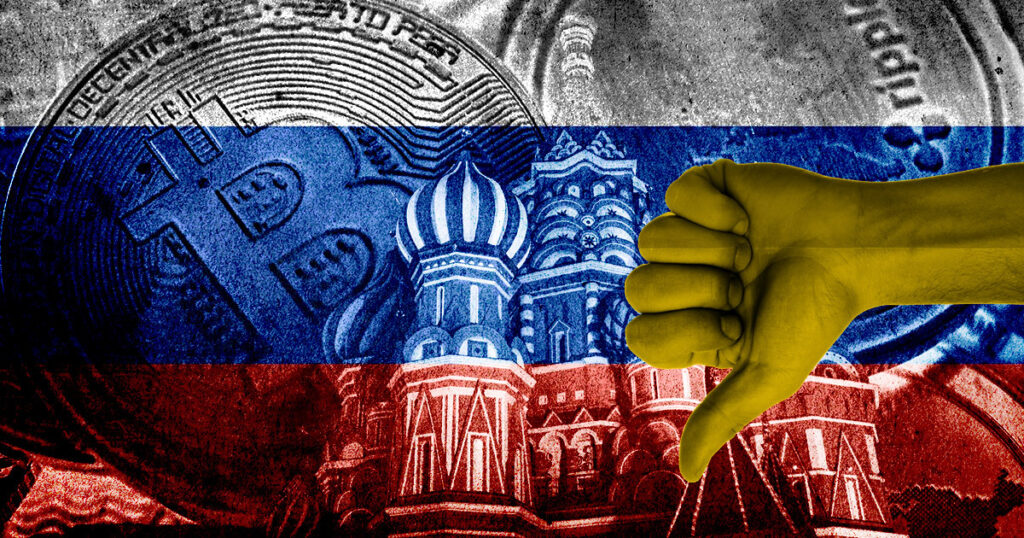Crypto is being touted as a workaround for Russia after being excluded from SWIFT.
The international community moved to ban several Russian banks from the payment system in a bid to impose monetary restrictions.
Peer-to-peer networks bypass traditional intermediaries, leading to a gaping hole in this strategy. In response, Ukraine’s Deputy Prime Minister Mykhailo Fedorov said exchanges should block all Russian users.
Fedorov’s outburst raises doubt on whether crypto is as censorship-resistant as proponents say it is.
The international community imposes SWIFT ban on Russia
SWIFT is a global messaging system set up in 1973 which facilitates international payments. Although the organization claims neutrality, it is still overseen by the G-10 central banks.
In pondering the knock-on effects of a Russian ban, some analysts conclude the action could be counterproductive in the long term.
The SCMP says the ban could increase the price of crude oil, adding to global inflationary pressure. The cost of oil has been spiking in recent weeks, with Brent Crude currently coming in at $102 per barrel.
Some say a price of $125 per barrel could spell disaster for the U.S economy, which is already on its knees with a four-decade-high inflation rate.
What’s more, the ban could also strengthen the Russia-China alliance via the use of China’s SWIFT equivalent, the yuan-based Cross-border Interbank Payment System (CIPS).
Professor Scheherazade Rehman of George Washington University summarized the situation, saying it’s one thing to ban Iran from SWIFT, but banning the 12th largest economy will have unintended consequences, including the rise of crypto markets.
“Unintended consequences – slower growth, you know, less business for U.S. banks and European banks, allowance of other systems to be put into place which are not entirely desirable, like the crypto market.”
Ukraine’s Deputy Prime Minister wants to ban all Russian crypto addresses
On the use of crypto to circumvent the SWIFT ban, the U.S Treasury said it isn’t too concerned.
A Treasury official said “laundering” crypto funds through wallets and exchanges is expensive and time-consuming. Also, publically open ledgers mean any such large-scale transfers are visible for all to see.
“We have never had more visibility of financial flows and money laundering than we do today in cryptocurrency…”
Not content with this, Ukraine’s Deputy Prime Minister Mykhailo Fedorov called on major crypto exchanges to enforce an outright ban on all Russian addresses.
Binance responded by saying it would not “unilaterally freeze millions of innocent users’ accounts.” Adding that doing so would infringe upon the principles of cryptocurrency.
Nonetheless, with the weaponization of the monetary system in recent times, including the Canadian truckers dispute, it’s clear that major exchanges will comply if pushed.
This begs the question of whether crypto is as censorship-resistant as we are led to believe.

